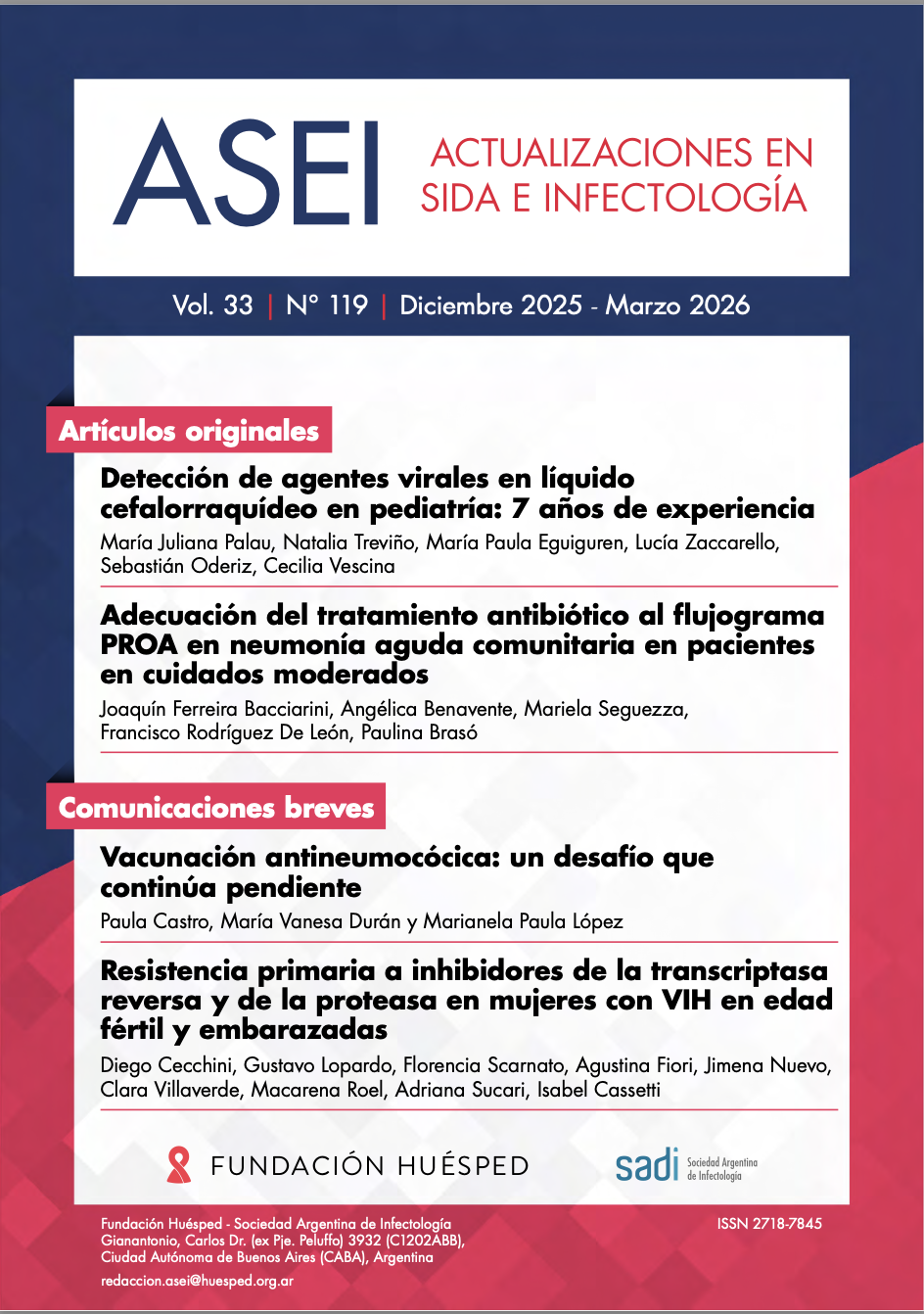Número actual
Vol. 33: Número 119 - Diciembre 2025 - Marzo 2026

Publicado:
2025-12-11

![]()
ISSN 2718- 7845
Los documentos publicados en esta revista están bajo la licencia https://creativecommons.org/
Fundación Huésped - Sociedad Argentina de Infectología
Av. Forest 345 (C1427CEA), Ciudad Autónoma de Buenos Aires, República Argentina
Contacto: redaccion.asei@huesped.org.ar
